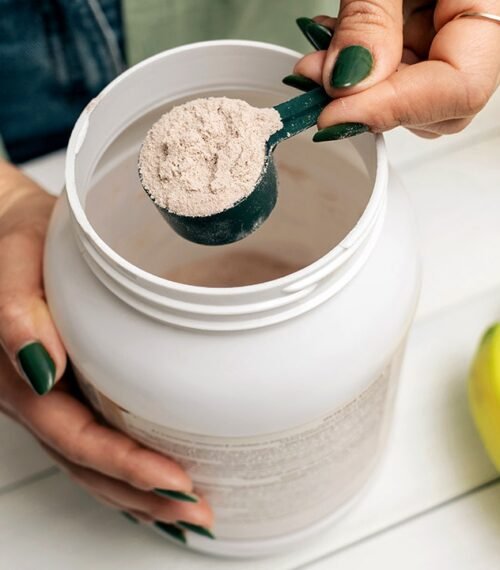FRIDAY, Sept. 5, 2025 (HealthDay News) — In response to growing concerns over the safety of unregulated versions of popular weight-loss and diabetes medications, the U.S. Food and Drug Administration (FDA) has unveiled a new import alert—dubbed the “green list”—to prevent unsafe glucagon-like peptide 1 (GLP-1) drug ingredients from crossing the nation’s borders.
The move comes at a time when demand for GLP-1 drugs such as semaglutide and tirzepatide continues to soar, fueled not only by their effectiveness in treating type 2 diabetes but also by their widespread use in weight management. Ongoing shortages of the brand-name FDA-approved versions, including Ozempic, Wegovy, and Mounjaro, have prompted some patients to seek alternatives in the form of compounded versions.
But experts warn that these compounded versions carry significant risks. Unlike their FDA-approved counterparts, they are not subject to the same rigorous testing and quality controls, and the agency has identified multiple safety issues—including dosing errors, unapproved salt forms of the active ingredients, and adverse reactions severe enough to require hospitalization.
What the “Green List” Means
The newly announced green list provides clarity on which GLP-1 active pharmaceutical ingredients (APIs) have been inspected and verified by the FDA as meeting federal standards. Only APIs appearing on this list will be allowed entry into the United States.
Any ingredient not included on the green list will now be subject to detention without physical examination at the border. This means shipments containing unverified APIs can be halted before reaching pharmacies, clinics, or consumers.
According to the FDA, the measure is an important step in tightening oversight of the U.S. drug supply chain at a time when counterfeit and unapproved products are becoming more common.
“This is part of the agency’s decisive steps to safeguard consumers from illegal GLP-1 active ingredients imported from overseas to ensure patient safety and a secure drug supply chain,” the FDA said in a public statement.
Why Compounded Drugs Raise Concerns
Compounded drugs, including compounded versions of GLP-1 medications, are custom-made by pharmacists to meet the needs of individual patients when an FDA-approved product is not suitable. For instance, a compounded version might be prescribed for a patient with an allergy to an ingredient in the commercial drug.
However, the FDA cautions that compounding should not serve as a substitute for standard medications when FDA-approved products are available. The agency has repeatedly emphasized that compounded drugs:
- Are not FDA-approved and therefore have not undergone the same clinical testing for safety and effectiveness.
- May be vulnerable to manufacturing inconsistencies, especially when APIs come from unverified sources.
- Have been linked to serious adverse events, including hospitalizations related to incorrect dosing or contamination.
In the case of GLP-1 drugs, the risk is especially concerning given how powerful these medications are and how sensitive patients may be to even small variations in dosage.
FDA Urges Patients to Take Precautions
The agency is advising patients to obtain GLP-1 prescriptions only from licensed healthcare providers and to fill those prescriptions at reputable, licensed pharmacies. For those seeking to purchase medications online, the FDA encourages consumers to use its BeSafeRx campaign, which provides tools to help determine whether an online pharmacy is legitimate.
“Americans should be confident that the prescription drugs they take are safe,” said FDA Commissioner Marty Makary, M.D., M.P.H. “By strengthening oversight of imported APIs and cracking down on illegal drugs entering the U.S., we are taking aggressive action to protect consumers from poor-quality or dangerous GLP-1 drugs.”
The Bigger Picture: A Rapidly Growing Market
The FDA’s announcement underscores the broader challenges facing the pharmaceutical industry and regulators alike. GLP-1 medications have quickly become blockbusters, not only for their success in managing diabetes but also for their much-publicized effectiveness in weight loss. As demand skyrockets, shortages have left many patients—and providers—frustrated.
This environment has created opportunities for unregulated compounding operations to fill the gap. While some may operate legally and responsibly, others have cut corners, importing unverified APIs from overseas suppliers. Without strict oversight, patients may unknowingly expose themselves to drugs of uncertain quality.
A Step Toward Safer Access
While the FDA acknowledges that compounded drugs may sometimes be medically necessary, the agency stresses that they should never become the default option for widespread use. The green list is designed to strike a balance: maintaining access for patients who truly need compounded alternatives while eliminating the highest-risk ingredients from circulation.
Ultimately, the FDA hopes the measure will protect patients, preserve trust in the pharmaceutical system, and ease pressure on a market already strained by high demand.
For patients considering GLP-1 therapy—whether for diabetes or weight management—the FDA’s message is clear: stick with FDA-approved products whenever possible, consult licensed healthcare providers, and remain cautious of online offers or compounded alternatives that lack regulatory safeguards.















































































































